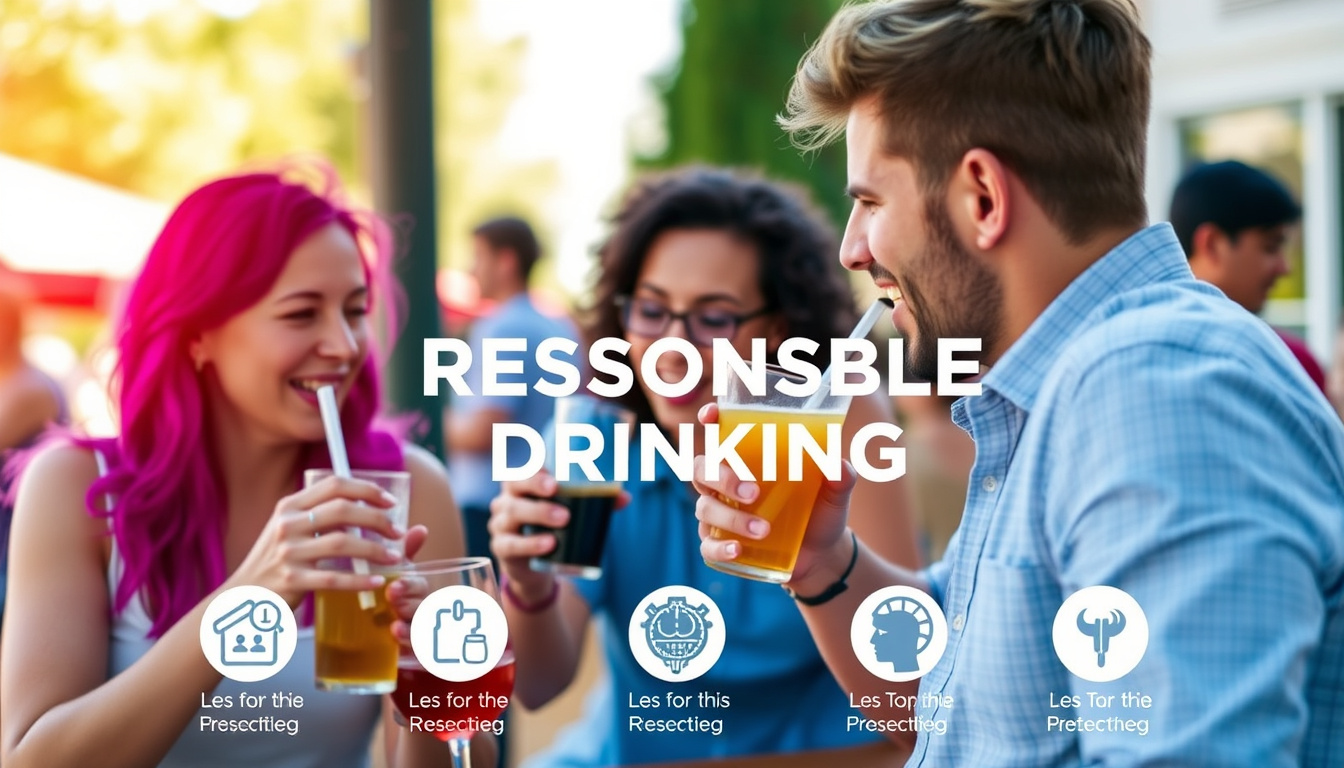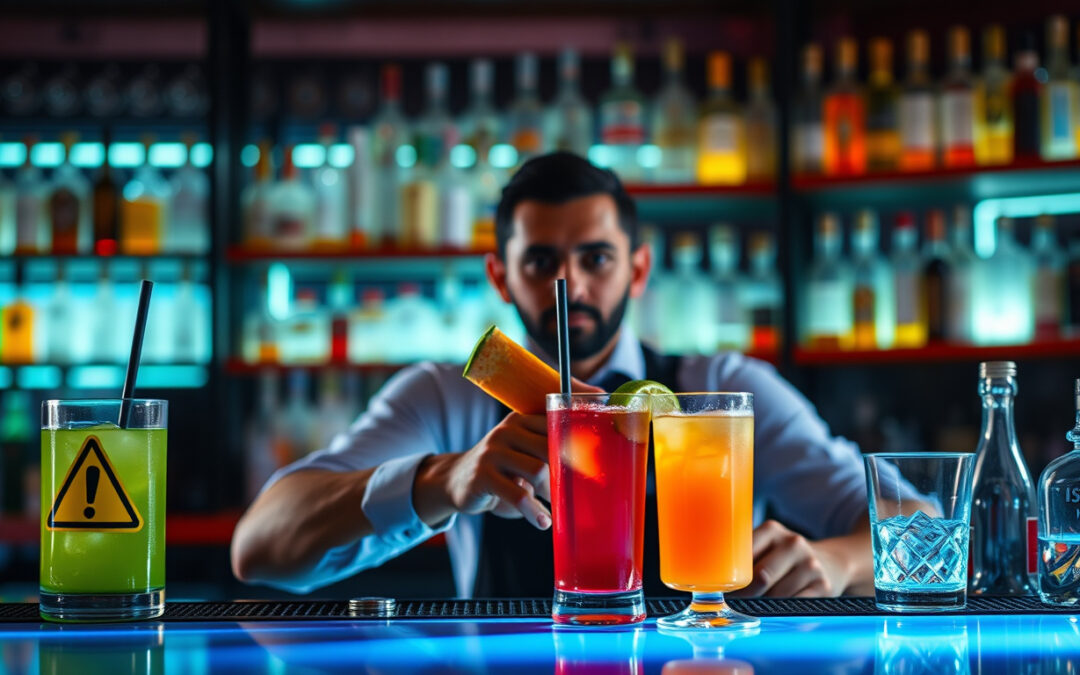In today’s social landscape, alcohol is often a central ingredient at celebrations, gatherings, and casual get-togethers. While moderate drinking can be enjoyable and socially engaging, it is crucial to prioritize alcohol safety and responsible drinking habits to protect yourself and others. Ensuring alcohol safety involves understanding how alcohol affects your body, knowing your limits, and taking proactive steps to prevent harm. This article explores essential tips for these purposes, empowering you to make informed choices and foster safer social environments.
Why Is Alcohol Safety Important?
Alcohol safety is vital because excessive or irresponsible drinking can lead to a variety of harmful outcomes, including accidents, injuries, poor decision-making, and long-term health problems. According to the Centers for Disease Control and Prevention (CDC), alcohol-related incidents are a leading cause of preventable injuries and death worldwide. Promoting responsible drinking helps reduce these risks, encourages healthier behaviors, and enhances overall well-being during social interactions.
Understanding the Effects of Alcohol on Your Body
Before diving into safe drinking practices, it’s important to understand how alcohol impacts your body. When consumed, alcohol affects your central nervous system, impairing judgment, coordination, and reaction times. These effects vary based on factors like age, weight, gender, metabolism, and tolerance levels. Recognizing these impacts helps you better gauge your limits and avoid adverse outcomes.
Key Tips for Ensuring Alcohol Safety and Responsible Drinking
1. Know Your Limits and Practice Moderation
One of the foundational principles of alcohol safety is knowing how much alcohol your body can handle comfortably. Generally, moderation means up to one drink per day for women and up to two drinks per day for men, according to the CDC. Excessive drinking increases the risk of accidents, aggressive behavior, and health issues. To stay within safe boundaries:
- Be honest with yourself about your tolerance.
- Avoid peer pressure to drink more than you can handle.
- Pace your drinks, taking a break of at least 1 hour between beverages.
2. Stay Hydrated and Nourished
Alcohol causes dehydration and can lead to hangovers and impaired decision-making. To counteract these effects:
- Drink plenty of water before, during, and after consuming alcohol.
- Eat a substantial meal before drinking to slow alcohol absorption.
- Choose foods rich in healthy fats and proteins for sustained energy.
3. Never Drink and Drive
Driving under the influence is perhaps the greatest danger associated with alcohol consumption. It significantly impairs your ability to operate a vehicle safely. To prevent this:
- Arrange for a designated driver who abstains from alcohol.
- Use public transportation, taxis, or rideshare services.
- Make alternative plans in advance if you plan to drink.
4. Look Out for Your Friends and Be Responsible
Being attentive to others’ well-being is a critical aspect of alcohol safety. If you notice someone showing signs of intoxication or distress:
- Offer to help them get home safely.
- Avoid pressuring others to drink more.
- Know the signs of alcohol poisoning, such as confusion, vomiting, seizures, or unconsciousness, and seek emergency help immediately.
5. Protect Yourself from Unsanitary or Unsafe Drinking Environments
Unsafe environments can contribute to risky behaviors or exposure to tampering. To protect yourself:
- Purchase alcohol from reputable sources.
- Do not accept drinks from strangers.
- Keep an eye on your drink to avoid tampering.
6. Be Aware of Alcohol Interactions with Medications
Alcohol can interact negatively with various medications, reducing effectiveness or causing harmful side effects. Always check with your healthcare provider or read medication labels before drinking. When in doubt, abstain from alcohol to ensure safety.
Practical Tips for Responsible Drinking in Social Settings
Enjoying alcohol responsibly in social settings involves proactive strategies. Here are some practical tips:
- Set a limit for yourself before you start drinking.
- Alternate alcoholic beverages with water or soft drinks.
- Use smaller glasses or drinks to control portion sizes.
- Stay engaged in activities that don’t revolve around drinking.
- Be prepared to leave or take a break if feeling overwhelmed.
The Role of Education and Community in Promoting Alcohol Safety
Creating a culture of responsible drinking extends beyond individual actions. Community programs and educational campaigns play a vital role. Schools, workplaces, and local organizations can offer resources that:
- Inform about the effects of alcohol.
- Promote responsible drinking behaviors.
- Support those struggling with alcohol misuse.

Research indicates that education and stigma reduction significantly improve alcohol safety outcomes (source). Encouraging open conversations and making resources accessible are essential steps toward safer communities.
Frequently Asked Questions About Alcohol Safety
1. What are the best practices for alcohol safety during social events?
Best practices include setting personal drinking limits, pacing your drinks, staying hydrated, arranging transportation home beforehand, and watching out for friends’ well-being.
2. How can I identify if someone has alcohol poisoning?
Signs of alcohol poisoning include confusion, vomiting, seizures, slow or irregular breathing, unconsciousness, and skin that is clammy or bluish. Immediate medical attention is necessary if these symptoms appear.
3. What are some effective ways to promote responsible drinking in a group?
Encourage moderation, offer non-alcoholic options, designate a non-drinking leader or buddy, and foster an environment where guests feel comfortable declining additional drinks.
Conclusion: Prioritize Alcohol Safety for a Better Future
Ensuring alcohol safety and responsible drinking is a shared responsibility that benefits individuals and communities alike. By understanding your limits, practicing moderation, and looking out for others, you can enjoy social occasions while minimizing risks. Remember that making informed choices and embracing responsible behaviors contribute to healthier lives, safer environments, and a more positive culture around alcohol consumption. For more detailed guidance and support, consult reputable sources such as the CDC or local health organizations. Stay safe and drink responsibly!
Disclaimer: This article is for informational purposes only and does not substitute professional medical advice. Always consult healthcare professionals regarding alcohol-related concerns.


